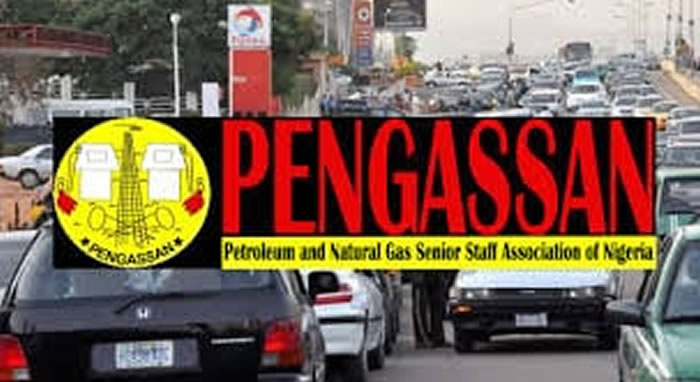Nigeria’s crude oil output has taken a significant hit following the ongoing strike by the Petroleum and Natural Gas Senior Staff Association of Nigeria (PENGASSAN), with reports showing that production has fallen by 50,432 barrels per day (bpd) in less than a week. The industrial action, which began after failed negotiations between the union and government representatives, has disrupted operations at several key oilfields, heightening fears of economic strain and potential revenue shortfalls for Africa’s largest oil producer.
Industry data from the Nigerian Upstream Petroleum Regulatory Commission (NUPRC) revealed that the country’s oil production, which averaged about 1.51 million barrels per day earlier this month, has dropped to approximately 1.46 million bpd as a direct consequence of the strike. The decline poses fresh challenges for the government’s efforts to meet its 2025 production target of 1.8 million barrels per day under the Organisation of Petroleum Exporting Countries (OPEC) quota.

The strike, initiated by PENGASSAN to protest against unresolved issues including welfare concerns, unsafe working conditions, and delayed implementation of negotiated allowances, has led to partial shutdowns in several offshore and onshore installations. Many facilities operated by both international oil companies (IOCs) and indigenous firms have scaled down operations due to the absence of senior technical and operational staff.
A senior official at one of the affected oil companies confirmed that output had been “severely constrained” since the industrial action began. “Most of our engineers, supervisors, and safety officers are PENGASSAN members. Without them, we can’t sustain normal production,” he said, speaking on condition of anonymity. “If this continues for another week, we may see deeper declines that could affect export schedules.”
The strike’s ripple effects are already being felt across the oil value chain. Crude export timelines have been delayed, while logistics firms involved in offshore transport operations are reporting reduced activity. At the same time, local refineries that depend on steady crude supply have expressed concern that prolonged disruptions could worsen fuel shortages in the domestic market.
PENGASSAN President Festus Osifo defended the strike, stating that it became inevitable after the government failed to meet several long-standing demands despite repeated engagements. “Our members are the backbone of Nigeria’s oil production system,” he said. “We have exhausted all dialogue channels. Until the government and employers honour our agreements and improve working conditions, we will not call off the strike.”
The Ministry of Labour and Employment has, however, appealed for restraint, urging the union to resume talks and allow essential operations to continue. In a statement, the Minister, Simon Lalong, acknowledged that the government was aware of the grievances and promised that a meeting with all stakeholders would be convened urgently to resolve the crisis.
The Nigerian National Petroleum Company Limited (NNPC Ltd.) has also expressed concern over the disruption. According to company officials, Nigeria risks losing significant revenue if the strike persists. With crude oil prices currently hovering around $82 per barrel, the daily loss of over 50,000 barrels translates to an estimated $4.1 million in missed revenue per day, a situation that could further strain the nation’s already fragile fiscal position.
Oil sector analysts have warned that the strike could undermine investor confidence at a time when the government is pushing for increased foreign investment in upstream projects. Dr. Bala Zakka, an energy expert, said the strike exposed underlying structural weaknesses in Nigeria’s oil industry. “This crisis highlights the lack of proactive labour management within the sector,” he said. “We should have mechanisms that prevent total shutdowns, especially in such a vital industry.”
The ongoing disruption comes at a sensitive time when Nigeria is also grappling with issues of crude oil theft, pipeline vandalism, and ageing infrastructure. The combined effect of these challenges has made it difficult for the country to maintain stable production levels over the past few years. The PENGASSAN strike now adds another layer of complexity to the government’s effort to stabilise the oil sector and attract new investments.
Meanwhile, some oil-producing communities have expressed concern that the strike could further delay the payment of statutory dues such as derivation funds and host community development allocations. “Our local economies depend on oil operations,” said Chief Ebiere Akpobome, a community leader in Bayelsa State. “When production stops, everything stops — from local businesses to employment.”
Financial experts also fear that prolonged disruptions could weaken the naira by reducing foreign exchange inflows from crude exports. Nigeria relies on oil for about 90% of its foreign earnings, and even a modest reduction in output can destabilise the balance of payments.
Despite the challenges, government officials remain optimistic that an agreement will soon be reached. Negotiations between representatives of the Federal Government, NNPC Ltd., and PENGASSAN are expected to resume in the coming days. Stakeholders are hopeful that concessions on both sides could lead to a resolution that prioritises both workers’ welfare and the country’s economic stability.
For now, the oil sector watches closely as talks continue. Many observers believe that how the government handles the PENGASSAN crisis will serve as a test of its ability to balance industrial relations with the urgent need to maintain Nigeria’s energy and fiscal stability.
Support InfoStride News' Credible Journalism: Only credible journalism can guarantee a fair, accountable and transparent society, including democracy and government. It involves a lot of efforts and money. We need your support. Click here to Donate
